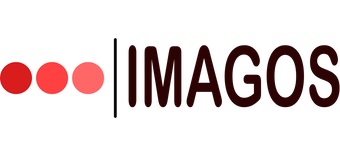As the health of a national economy depends to a great part on using resources effectively and efficiently, the importance of financial oversight bodies and their respective roles in safeguarding public monies from misuse and waste are crucial. Thus this publication targets entities that are part of a national integrity system (as defined by Transparency International) and which are key players in the effective and sustainable enhancement of national accountability and transparency. The approach/methodology targets government areas and entities that are particularly prone to corrupt practices as identified by governments, supreme audit institutions, inspectorates general, the international donor community, non-governmental organizations, civil society organizations as well as the authors.
The compendium focuses on corruption and malfeasance of administrative, technical and financial nature within all government administrative units and institutions and reveals these financial anomalies. The compendium is applicable to different national contexts and donor requirements. Working papers including comprehensive checklists have been developed and are available as are models of institutional risk assessment reviews/anti-corruption audit findings, recommendations and dispositions.
Initial Concept
The initial concept for this work originates from a methodology to conduct integrity self-investigations developed by the Netherlands’ Ministry of the Interior and the Bureau of Integrity of the City of Amsterdam. It has subsequently been amended/refined to fit developing countries’ settings and issues and particularly streamlined for Sierra Leone and Bulgaria anti-corruption projects within ministries and further reformulated for integration into the Iraq Supreme Audit Institution.
Methodology
It consists of a step-by-step guide to assess and identify potentially vulnerable areas (hot spots) within an executive entity and is based on three premises; (1) preventive investigation; (2) self-examination; and (3) focus on systemic improvements to the organisational structure. It comprises four stages: (1) preparation (2) identification of vulnerable activities/areas (3) review of these vulnerable activities and (4) the formulation of recommendations to management.
The entity thus carries out its own review/audit using tools that are specially developed and pre approved by it through, e.g. conducting a workshop with the entity’s staff. The objective of such a workshop is to identify and assess beforehand vulnerable areas, processes and activities, and are followed up by a survey with questionnaires, completed by staff at different levels of each directorate.
Intended users
This compendium is meant to be a guide and tool in a multi-pronged approach to anti-corruption in the public sector and has been specifically developed for use by executive branch entities such as ministries and the legislature oversight body, the national supreme audit institution (SAI) and may be used at both the national and local levels. It is also particularly suited for internal oversight bodies such as inspectorates general, internal audit and internal control departments, anti-corruption agencies, training institutions and international donor organizations at both bilateral and multilateral levels.
Authors
The authors of this compendium draw from their multi-country and multi-donor experiences with national executive, legislature and supreme audit institution entities involved in financial oversight. Specifically their extensive international experience/expertise in formulating and conducting pilot audits in line-ministries and public entities in Sierra Leone, Bulgaria and Iraq form the basis of this novel approach.
Daniel Blais, Canada and Fred Schenkelaars, Netherlands have many years of international experience in democratic and financial governance and have been involved in anti-corruption activities related to the institutions targeted in this compendium. They both are members of Transparist, a group of highly experienced international experts involved in anti-corruption work and having complementary skills for a holistic approach to a particular national integrity system.


